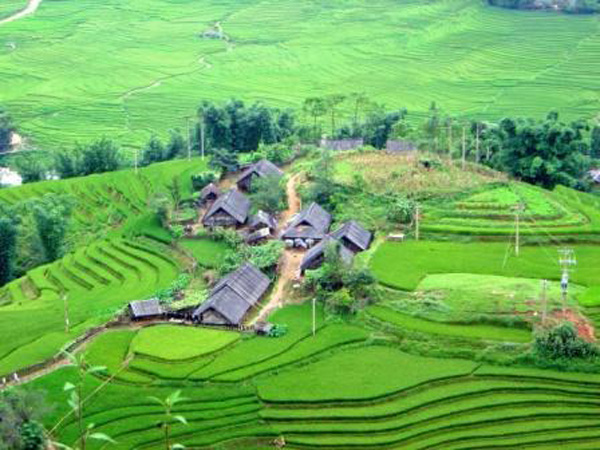
Many of us would love a greater sense of community. Everyone knows life isn’t complete without close friends and family. This fact weighs on our decision where to live. We need to think this through carefully.
The photo above shows an extended family farm in Vietnam. It’s hard to know how many families are living there, but it looks like quite a few. In addition to developing close ties, helping with child rearing and so on, there are lots of other benefits to this arrangement. For one, many hands make light work. At peak work seasons such as planting and harvesting or constructing a new home for a newlywed family member, there’s always plenty of workers to help out. That means the money stays in the family instead of paying workers outside the family.
Families with a variety of skills can save even more money by eliminating the need to hire outside specialists. Each person could learn a vital skill — mechanic, carpenter, plumber, electrician, animal husbandry, rice miller, welder/blacksmith, midwife, bookkeeper, etc. and take care of the needs of everyone in the extended family. The next generation could go on to more advanced fields such as agricultural science, nurse, vet, accountant, computer programmer, teaching, etc.
Once the land is paid for, families never have to pay rent or mortgage payments. Obviously this can add up to a small fortune over the years. You probably remember the video we posted a while back about roundhouses in China. See Earth Buildings of Hakka People. They did something along these same lines. They pooled their talent, worked together, saved money and gradually became very successful. Later generations went to international universities and created large businesses.
Image source: Vietnam Travellook

A wonderful book to read regarding community is THE BOND by MacTaggart. Based on science, the ideas work and this is a must read no matter where we live, in fact because of where we live.
OK, thanks.